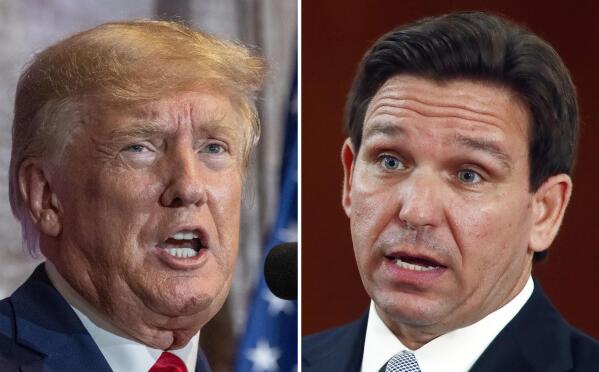
The midterm elections were, overall, a poor performance for the Republican Party. According to FiveThirtyEight’s forecast, the most commonly predicted outcome was a 51-49 split in the Senate and a 227-208 split in the House, both in favor of the GOP. With inflation high, President Joe Biden’s low approval ratings, and midterm elections usually being rough on the incumbent party, many predicted a “red wave” that would see the GOP take both chambers of Congress – a brutal blow to Biden’s presidency.
The actual results, of course, were quite different. In Pennsylvania, the most notable flip of the midterms thus far took place when Lieutenant Governor John Fetterman defeated television doctor Mehmet Oz by over 4%, despite polling showing Oz in the lead. In Michigan, incumbent Governor Gretchen Whitmer won re-election with a dominant margin of 10.6% and Democrats won the State House and State Senate for the first time since 1984. In Minnesota, Governor Tim Walz won re-election by a margin of nearly 8%, and the Democrats took back the State House and State Senate as well. In Wisconsin and North Carolina, despite fears that the GOP would win a veto-proof supermajority in each of the State Legislatures, Democrats in both states prevented this worst-case scenario. With ballot counting still underway at the time of writing, Democrats have retained control of the Senate, and the GOP is likely to take back the House by a slim margin – an inevitable headache for Kevin McCarthy to handle.
Despite the broadly disappointing nature of the results, there was a bright spot for the Republicans: Florida, where incumbent Governor Ron DeSantis won a landslide victory over Charlie Crist. A testament to the degree of DeSantis’s victory, he managed to flip Miami-Dade County, Florida’s most populous county and a former Democratic stronghold.
DeSantis’s dominant victory is in sharp contrast to Trump’s record from the night – a number of high-profile Trump-backed candidates such as Oz and Doug Mastriano fared poorly in their races. Blame has already been pointed at Trump for his involved role as “kingmaker” of the GOP – most prominently by the news outlets owned by right-wing media magnate Rupert Murdoch. The Wall Street Journal’s editorial board ran an op-ed titled “Trump Is The Republican Party’s Biggest Loser,” and a recent cover by the New York Post was certainly unfriendly towards the former President.
As CNN described, for Trump the midterms were an “emperor-had-no-clothes” moment. Much of his brand was heavily built on him being a “winner” – rich, successful, famous, the President – but that brand has suffered a major shock in the wake of this most recent loss, on top of his loss in 2020 and the 2018 midterms.
But now, the GOP has another “winner” they can look up to in Ron DeSantis.
A recent poll has put DeSantis ahead of Trump as the favorite to win the Republican presidential nomination in 2024. Trump himself evidently views DeSantis as a threat – oddly giving him the nickname of “Ron DeSanctimonious” and attacking him directly. While it’s unclear how long the backlash against Trump will last, with blame already being directed at Mitch McConnell and others in GOP leadership, one thing is clear: Trump will not go quietly into the night. Already, he has announced his third bid for the White House.
It was relatively easy for the GOP to get into line behind Trump following the 2016 election. He was the President, a so-called “winner,” and a convenient tool for McConnell and others to use to ram through their agenda, most notably the three young, highly conservative Supreme Court justices that Trump appointed. But making a proverbial deal with the devil in endorsing, normalizing, and advocating for extremists such as Trump has its downsides – namely that it’s near impossible to shoo them away once they’re no longer politically viable.
Ron DeSantis would be a smarter choice for the GOP: though dangerous all the same in his policy agenda, he’s younger, more capable, and overall a better politician. Trump’s election denialism and radicalism is a major liability – as Rep. Elissa Slotkin put it, “democracy is the ultimate kitchen table issue,” and Trump has positioned himself as firmly anti-democratic. Aside from denying the 2020 election, he has courted far-right extremists and the dangerous Q-Anon conspiracy as some of his firmest backers. Ego-driven as a man can be, there is little doubt for me that Trump will remain in politics for as long as he can – first as an asset to the GOP, now as a thorn in their side.
The evidence shows that Trump is more of a drag on the GOP’s ability to win elections, and so they face an unenviable dilemma going into 2024. If they fall back into line behind Trump in 2024, his presence on the ballot will be the ultimate driver to spur Democratic turnout. If they attempt to spurn for him a better “winner” in DeSantis, then they have to prepare for a bruising civil war – and even if he loses, around 30% of the GOP identifies themselves as Trump supporters before Republicans. Trump’s absence from the ballot may depress Republican turnout, and there’s no guarantee that Trump wouldn’t try a third-party or independent candidacy should he lose the primary.
The Republicans made their bed in backing Trump so ferociously; now, they have to lie in it.



